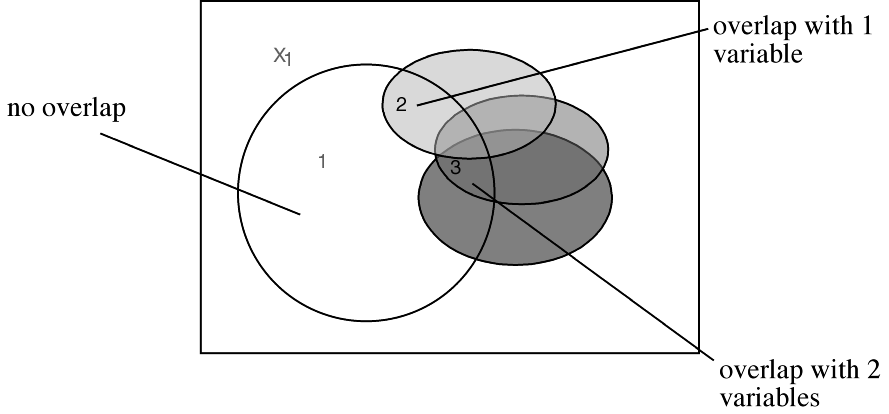
This course provides an introduction to, and the fundamentals of multiple regression, covering enough of the statistical material for the intelligent use of the technique. The approach is informal and applied rather than emphasising proofs of relevant theorems.
This course will be run over 5 days in three sessions per day:
- 10.00 am - 11.30 am - Session 1
- 12.00 pm - 1.30 pm - Session 2
- 2.30 pm - 4.00 pm - Session 3
Exercises will be provided, and 20-30 minute individual consultation sessions can be scheduled for each participant by appointment.
This course is being held online via Zoom and run on Australian Eastern Standard Time (GMT +10)
Particular attention is given to the application of multiple regression to substantive problems in the social sciences. By the end of the course, you will have a knowledge of the principles of multiple regression, and the ability to conduct regression analyses, interpret the results, and to use regression diagnostics to test the underlying model assumptions, and write-up the results for publication.
Participants who are considering regression analysis of their own data are encouraged and there will be time for individual consultations.
This course provides the foundations necessary for progression to ‘Applied Multiple Regression Analysis’, and to subsequent advanced-level courses in structural equation modelling and log-linear modelling.
The course is designed for those who have limited knowledge and experience with multivariate statistical techniques, and seeking the knowledge and skills to use multiple regression for research at a post-graduate level / publication standard. The course notes provide instructions for all the major statistical packages (SPSS, SAS, Stata and R.)
The Fundamentals of Multiple Regression course covers the following 14 topics.
Module A: Fundamentals
1. Bivariate Regression
2. Review of Classical Hypothesis Testing (“Null-Hypothesis Significance Testing”), including the role and un-importance of p-values and the importance of effect size.
3. Review of Regression Output for SPSS, SAS, Stata and R -- what it means, how it is calculated, how it is interpreted, and how researchers might use it.
Module B: Multiple Regression
4. Multiple Regression -- detailed examination of how it works and the interpretation of output.
5. Multiple Regression with Nominal-Level Variables. Nominal–level variables (also known as unordered categorical variables) – creating and using "dummy variables" in regression (such as gender, country of birth, suburb of residence, etc).
6. Multiple Regression with Ordinal-level Variables -- for example, incorporating responses on a 5 or 7-point Likert-like rating scale in a regression model
Module C: Extensions of OLS: Logistic Regression and Polynomial Regression
7. Regression with Binary (Dichotomous) Dependent Variables -- an introduction to (binary) logistic regression with binary (dichotomous) dependent variables
8. Non-linearity with Polynomial Regression
Module D: Regression Diagnostics, Transformations and Polynomial Regression
9. Variable Transformations to Re-Express Data – transformations towards normality and assessing normality.
10. Regression Diagnostics & Functional Form – detecting outliers, non-linearity
11. Missing Values – treatment of missing values using deletion methods (pairwise and list wise deletion), single and multiple imputation
12. Multicollinearity - impact on regression results and measures of multicollinearity
Module E: Applying Multiple Regression
13. Model Building with Regression – a step-by-step guide to analysing data using regression
14. Writing up Regression Analyses – presenting your results in theses and academic journals.
This course is being offered 'live' online using Zoom.
You will need a computer and your preferred software, SPSS, SAS, Stata or R.
Course Program—Session by Session
Day 1
Session 1: Bivariate regression
Session 2: Significance testing and effect sizes
Session 3: Regression Output with SPSS, SAS, Stata and R
Day 2
Session 1: Multiple regression
Session 2: Regression with nominal (categorical) variables
Session 3: Regression with ordinal-level variables
Day 3
Session 1: Logistic regression for binary dependent variables
Session 2: Non-linearity with polynomial regression
Session 3: Variable transformations to re-express data
Day 4
Session 1: Regression diagnostics
Session 2: Missing values
Session 3: Multicollinearity
Day 5
Session 1: Model building with regression
Session 2: Writing-up regression for publication
Session 3: Unplanned Session (questions, queries, conundrums?)
Participants should have completed an introductory statistics course covering at least some of the syllabus of Introduction to Statistics. A significant part of the course is the translation of the principles of multiple regression to practical data analysis using a statistical package. Some experience with a statistical package, such as SPSS, Stata or SAS, or the spreadsheet Excel is desirable.
Nearly all good social statistics texts treat regression analysis and thus constitute suitable reference material. The following short monographs provide short, clear and technically sound coverage.
- Lewis-Beck, M., Applied Regression: An Introduction, Sage, 1980
- Achen, C., Interpreting and Using Regression, Sage, 1982.
- Berry, William and Stanley Feldman, Multiple Regression in Practice, Sage, 1985.
Q: Are there any prerequisites for this course?
A: You should have completed an introductory statistics course – see recommended background
Will help me read & understand research. On my may to being able to conduct my research (Winter 2017)
To be honest it opened my mind to contain things that will help throughout my research (Summer 2017)
David was excellent. Honestly, I have had many stats teachers in the past and David was so clear great communication skills. (Winter 2016)
Gave me a sense of confidence in the statistical methods, and some helpful tips in the procedures to help in my work (Summer 2016)
Helps me understand the foundation to build my model and my next phase of study. (Summer 2015)
The course was true to label; it covered the fundamentals of regression and provided opportunities to learn how to interpret software outputs. (Winter 2014)
David John Gow is a consultant in research methods and statistics and their application in the social sciences. He has taught in many ACSPRI Summer and Winter Programs
The instructor’s bound, book-length course notes will serve as the course text.
